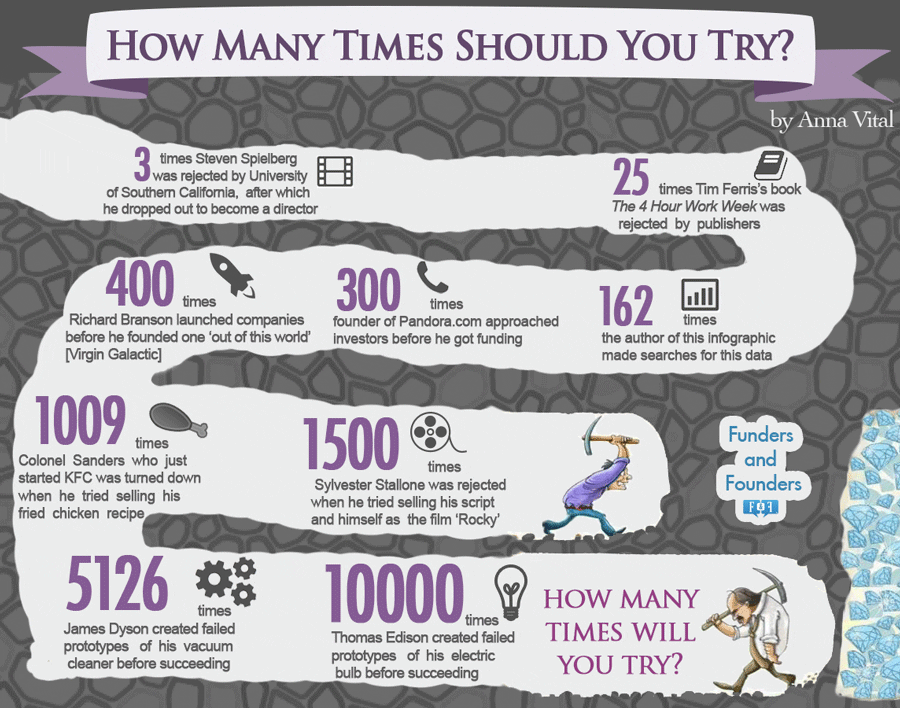Sean Blagsvedt is the CEO of Babajob.com, which connects employers to informal sector employees in the developing world – such as delivery helpers, maids and drivers – through a combination of mobile phones, location, skill and price filtering and social connections. The site has registered over 2.8 million job seekers, added 2.5 million job positions and raised Series A funding from Vinod Khosla Impact, Gray Ghost Ventures and USAID.
Previously, Sean spent 9 years with Microsoft in the Office, Windows and Research groups. In 2004, Sean moved to Bangalore as the 3rd member of Microsoft Research India, heading the Program Management and Advanced Prototyping team, focusing on novel approaches to mobile phones and technology in emerging markets.
Prior to Microsoft, Sean worked at the White House with the Internet Policy czar, Ira Magaziner. Sean holds dual bachelor degrees in Computer Science and Public Policy from Brown University (1998). He is a TED Fellow and married to Jaaga.in founder Archana Prasad with whom they share a wonderful son, Vyom, and dog, Berlin.
In your own words what does your startup do?
Babajob reduces the inefficiency of hiring someone for informal, entry-level and blue-collar jobs. Previously, employers relied on personal recommendations, newspaper ads, or other sources that do not always provide qualified candidates in a timely manner. Through Babajob, they now have access to millions of potential candidates and with our proprietary matching algorithm, they can sort through them instantly. We offer a range of premium services and support to employers that make hiring easier. We deliver relevant job information to jobseekers for free via internet (web and mobile), an Android app, SMS, and voice services. Jobseekers need only a mobile phone to register on Babajob and apply for jobs.
How did you come up with the idea of your startup?
While I was working at Microsoft Research in Bangalore, we had a fairly wide bunch of things that we looked at related to technology in emerging markets like India. One day, our team was presented an academic paper by Anurag Krishna. It had a very basic premise and answered a very simple question: Why do people flow in and out of poverty? What the paper found was that people get trapped in poverty due to health care related debts and people get out by getting different jobs, often through people they know. I thought that was a very interesting insight and one that I thought possible to be digitised. Upon reading that paper, literally I said, “if we just had LinkedIn for the village we could all go home.” And so there was this germ of an idea; could we digitise all the jobs and jobseekers and make those connections visible. That was the idea upon which babajob was based. And it was borrowing from things like Craigslist.com and LinkedIn. That was an idea I began germinating in terms of how do I make a digital job marketplace work? How do I use phones? How do I make connections?
Could you walk us through the process of starting up?
I had to figure out, how do you digitize people who don’t use computers and how to get employers to tell us about their hiring needs? At MSR we had been looking at phone-based solutions and so I literally began sketching and thinking things like “Oh how would this work over SMS?” Once I explored the use of SMS, I thought that I could make a job portal that notifies people with SMS when they get hired and had the ability for somebody who knew how to use a computer to help out somebody else that didn’t. The problem for me was important and motivating enough that I just had to see where that idea took me. So I began working with another colleague who saw the prototype and said yes, let’s do this. I recruited my step-farther who had run a couple of software companies in the US to come out to India and then I quit my job. That was the process of starting for me. I had an idea and was super motivated and I began drilling down user interface sketches and the beginning of some initial prototypes of things that I thought might work and was basically encouraged by others to say this is worth trying and you should go for it. So eventually I got up the confidence to be able to quit my day job and say “great I’m going to do this and try to make this happen”.
Did you encounter any particular difficulties during startup and if so, how did you guys overcome it?
One problem is that it is always difficult to design from multiple user groups. As a market place we have employers who hire people and we have jobseekers who want jobs and within that there are many different types on both sides. I think a lot of times, the more you can simplify your assumptions about those groups and sub-groups, the easier it is to execute the idea to build something.
One of the difficulties we had was “how do you do outreach to the jobseeker population that are not traditionally digitally connected?” That is, how do we target delivery guys, drivers, security guards and maids that are not traditionally internet users. And so, for us we have looked at a variety of different models of distribution which were a challenge for us. When we first started we worked along with skill-training NGO’s to get them to tell their clients about what we were doing. These were the people like maid associations, slum dwellers associations. We found that to be very intensive in terms of how much work it took to build relationships with those organisations. We spent 3 to 6 months building relationships with NGO’s only to find that they would sign up 200 people of which maybe only 30 of them would be engaged in the job process and only 5 would be hired. So that didn’t seem like a very good result of our effort. It also did not look very digitally scalable. But we learned that the hard way. We also looked at telephone companies as distribution partners. Especially if we go back to 2008-2009 in India, rather than the internet companies like Amazon and FlipKart, the big fish in town were these mobile VAS companies that were selling caller ringtone and cricket alerts, etc. We tried for 2 years to work with them as a distribution channel to reach jobseekers. We found that we were a bit naive to try to motivate a telephone company to do marketing on our behalf. The jobseekers that we got from this channel were not engaged and it was difficult getting any real traction with these companies. Now we rely on traditional forms of digital marketing and press articles to attract jobseekers and employers.
How have you been developing your company since startup (i.e. what’s the developmental direction)?
Babajob has always been very data-driven in our approach to building the product. We follow lean principles to quickly prototype and test changes we make to the platform. This has allowed us to grow and improve our service, while still ensuring a quality experience for employers and jobseekers. Since starting Babajob in 2007, we have seen exponential user growth. Our platform is becoming more accessible and effective. Over the past 4 months, we have rapidly expanded our staff across all areas of the business so that we are able reach millions more jobseekers and employers across the country.
What kind of feedback did you get for your startup so far?
Early on, we were encouraged by the board and other trusted advisors to build one visible system and focus on what is the core unit that we are selling, which helped us clarify the business. It took us 5 years to figure out the product and set of features that appeals most to employers.
Do you face a lot of competition in this industry?
We compete against some of the largest domestic and international job portals. What makes Babajob different is it’s focus on entry-level, blue-collar and informal sector jobs and the ways we make opportunities accessible to aspiring jobseekers. Our strategy is to make ourselves the best service for employers and jobseekers in the focused set of categories that we operate in, which have specific needs that other employment channels are lacking.
Have you developed any industry insights that you could share?
We are in constant contact with jobseekers and employers, so we have an evolving understanding of their respective pain points.
We also have a wealth of data on hiring behavior and salary trends across the job categories that are serviced on Babajob. Users are able to see average salaries for jobs in their category and location when they are posting jobs and applying. We can use such data to map the change in salary over time in a particular category and location. For example, we know that driver salaries in Bangalore have gone from Rs. 8300 in 2013 to close to Rs. 11400 by the end of 2014. Given the volume of traffic we get on Babajob, we are confident that these figures are representative of trends in the industry as a whole.
How do you plan to stay relevant in this industry?
Babajob will become more relevant in the future as the number of mobile phone users and the number youth entering the work force in India increase. We are developing more and better ways for jobseekers to access Babajob from their phones. Babajob is also well suited for small and medium sized enterprises because our service is more affordable and easier to use for hiring managers than other sites. We see the number of SMEs in India increasing rapidly in the coming years and we are hoping to benefit from that growth.
What is the future of the industry in your opinion?
I think the future of industry is around reliability. By reliable I mean that when people want to hire somebody they can and do so with confidence. We have seen this in other marketplaces that have really done quite well and have shaped industries. In the transportation space, the likes of Uber, Ola and others like them have used an app that has been aggregating supply and demand and then reliably matching suppliers to buyers in real time and in a manner that is transparent for both parties. We have not yet seen that in the general employment space, especially at the lower end. I think the direction of the industry is moving towards this kind of reliability.
Was there anything that disappointed you initially?
When we started working with NGO’s thinking that they would be excite about helping their clients. We were not making money from the jobseekers, since we were charging the employers. When we begin to work with several of them we found that they were charging their clients to register for babajob, which was intended to be free for them. We were saying that this would help the population and they basically figured out how to make money out of it. I don’t think I should have been surprised. But, given that we had an agreement that they weren’t supposed to do that and they still did was disappointing at that time.
What do you think about being an entrepreneur in Asia? Is it harder or easier, why?
I think it’s different. I have never been an entrepreneur anywhere else. I also have never met an entrepreneur who said that their job was super easy. I think sometimes there are useful perspectives that you get coming from a different country. Many Indians I met had biases about traditional caste divisions and the capabilities of people at the bottom of the pyramid. The day before I came to India I went to the Seattle library, which has 200 computers. If you go there during the day it is entirely used by homeless people. Basically this put the idea in my mind that it is not about income or even skills that creates the barriers to entry for people to use technology. Everybody is going to use these tools, you just have to make them accessible. That was a helpful perspective and had I not been from the States and seen the very poor in America using digital systems, I don’t think I’d have been so fast to assume that it could happen here.
What is your opinion on Asian entrepreneurship vs Western entrepreneurship?
I do think there is a difference. In India, at least, to be successful with a mass-market product you have to consider income ranges that are much larger than most companies would consider in the States. This affects the way you conceptualize a product. For instance, telephone companies in India are selling their product for $2 a month and being profitable, whereas similar companies are selling the same thing at $50 a month in America. If you want to build mass-market product you do have to think differently just because you have so many different literacy and income levels. You also have to create a product in the absence of the kind of reliable platforms on which businesses in America can build a business. For example, you can assume that people in America have Visa/credit cards so that if want to ask somebody to pay you can just build a web portal for them to do so. We can make that same assumption for our employers; we can’t make that assumption for our jobseekers. If you then look at the companies that have really thrived in India, they’ve figured our clever solutions to get around these challenges. Also there are no social security numbers so you have to figure out how to approximate trust without that.
What is your definition of success?
Being responsible for one hundred million hires would be my definition of success. We achieved a vision that we set out to. We made a tool that is digital and allows anyone in the working age population to be able to turn on their phone and get information about jobs that are relevant for them. Also we have made it possible for employers also to hire jobseekers digitally.
Why did you decide to become an entrepreneur?
When I moved to Bangalore in 2004 with Microsoft, I was in a 3-man group and I found it very fun to work with two other people that I really liked to grow an organisation from the three of us to about 100 people. So I think that put the startup bug in me, in terms of wanting to repeat that process.
What do you think are the most important things entrepreneurs should keep in mind?
Believe in what you do with your wallet and your heart and your head. Otherwise, I think it’ll be difficult to find the motivation required for success. Find people that are as passionate and dedicated to this problem as you are. Also, recognise as an entrepreneur that your job is different; it is to set up cultural standard for your team, project the vision and to make sure you always have money in terms of sales or investment. That ends up becoming your job as an entrepreneur.
In your opinion, what are the keys to entrepreneurial success?
Hustle. All the successful entrepreneurs I know have this innate ability to carry the load and still preserve. So I think you need that.
Connect
Website: www.babajob.com
LinkedIn: in.linkedin.com/pub/sean-blagsvedt/0/187/920/en
Facebook: https://www.facebook.com/babajob
Twitter: @babajob































